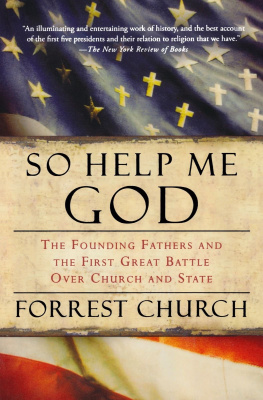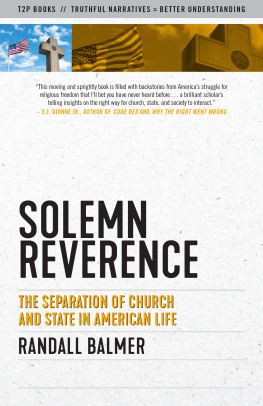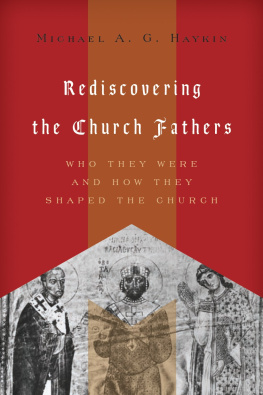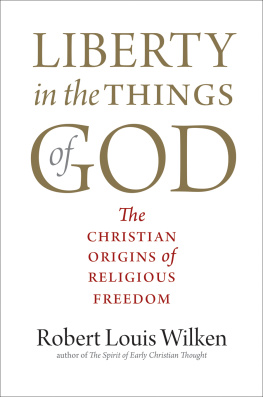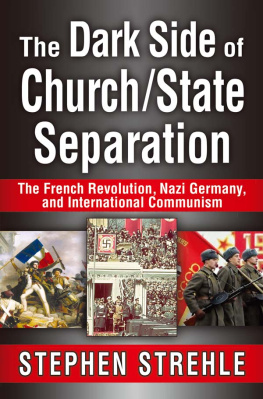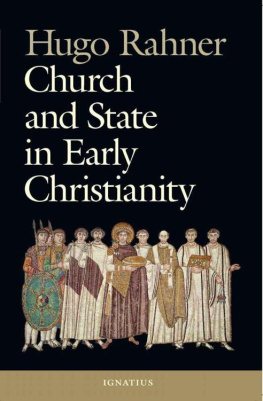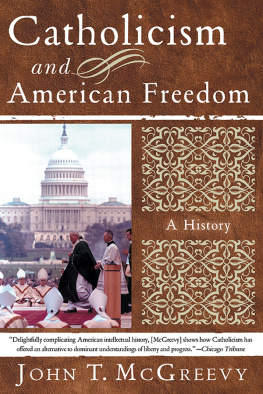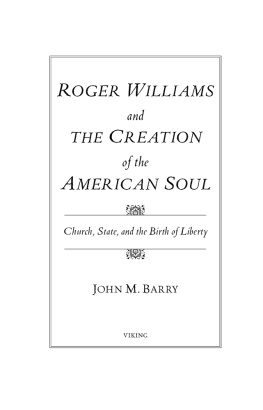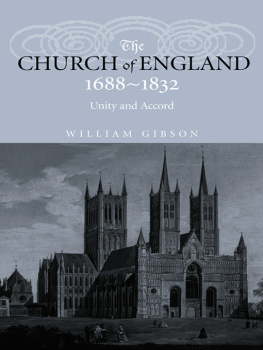Copyright 2007 by Forrest Church
All rights reserved. No part of this publication may be reproduced or transmitted in any form or by any means, electronic or mechanical, including photocopy, recording, or any information storage and retrieval system, without permission in writing from the publisher.
Requests for permission to make copies of any part of the work should be submitted online at www.harcourt.com/contact or mailed to the following address: Permissions Department, Harcourt, Inc., 6277 Sea Harbor Drive, Orlando, Florida 32887-6777.
www.HarcourtBooks.com
Library of Congress Cataloging-in-Publication Data
Church, Forrest.
So help me God: the Founding Fathers and the first great battle over church and state/Forrest Church. 1st ed.
p. cm.
Includes bibliographical references.
1. United StatesChurch history18th century. 2. United StatesChurch history19th century. 3. Christianity and politicsUnited States. 4. Church and stateUnited States. 5. PresidentsUnited StatesReligion. I. Tide.
BR515.C523 2007
322'.1097309033dc22 007007363
ISBN 978-0-15-101185-8
Text set in Adobe Garamond
Designed by Liz Demeter
Printed in the United States of America
First edition
C E G I K J H F D
To the congregation of All Souls,
for three decades of loving kindness
Introduction
O NE WEEK after the Union debacle at Bull Run in July 1861, the Reverend Horace Bushnell ascended his Hartford, Connecticut, pulpit to issue a lament: Our statesmen, or politicians, not being generally religious men, take up with difficulty conceptions of government ... that suppose the higher rule of God. Bushnell traced this failure of moral imagination back to the founders. In his view the nations story opened blasphemously. Where a faithful citizen would expect to find In the beginning, God..., the story read, In the beginning, Thomas Jefferson....
The differences between Bushnell and todays political preachers are as intriguing as the similarities are obvious. Recognizing how profoundly Enlightenment influences shaped the Declaration of Independence and American Constitution, Bushnell called on the people to reject the founders vision. His modern-day counterparts beseech their fellow Americans to return to the founders to resurrect America. And Bushnell was at heart a liberal Christian, whereas most of todays thunder comes from the Religious Right. But the foundation for their shared concern is more basic than any differences that may separate them. In sum, The Christian people of America deserve and demand a moral, God-fearing government.
Bushnell's quest to save America by reestablishing the nation on sounder religious footing was by no means novel. As early as 1800, in the first hotly contested presidential campaign, Federalist Party preachers carried a like standard into political battle against Jefferson. From the outset of our experiment in government, in fact, the founders fought tooth and nail in a contest over American values, a vigorous, sometimes savage, yet nearly forgotten thirty-year conflict to redeem the nations soul.
Bushnell had a keen ear for the contrapuntal themes sounded by the opposing factions in early American politics. Two distinct elements informed Americas experiment in government, he said. First was the historic element represented more especially by the New England people; these were church ideas, establishing government on a scriptural foundation. God was the head of authority and the rulers were to have their authority from Him. Competing with this churchly ideal was the Enlightenment commitment to liberty and equality represented in Mr. Jefferson, a man who taught abstractly, not religiously, and led the unreligious mind of the times by his abstractions. In Bushnell's view, Americas founders failed to raise their sights high enough to perceive the throne of order and law above the range of mere humanity. In short, they desacralized the United States government. At the outset of our nationhood, they stripped the state bare of any explicit moral or religious authority. You will thus perceive, he concluded, that two distinct or widely different constitutional elements entered into our political order ... struggling in the womb of it, like Jacob and Esau, from the first day until now.
To resolve this fraternal conflict, Bushnell called for the creation of a Commonwealth of God. Jefferson spoke as wistfully of establishing an Empire of Liberty. Both visions arose from spiritual first principlescall them divine order and sacred liberty. Cast in terms of the nations motto, Epluribus unum (Out of many, one), the advocates of divine order believed that to uphold one nation under God, the secular and sacred realms must rest on a single foundation. Without a united sense of purpose and clear moral vision, they argued, liberty would lapse into license. Champions of sacred liberty believed that to promote liberty and justice for all, the secular and religious realms must be kept autonomous. Government attempts to impose religious (or moral) values suppress religion instead, they claimed, by violating individual freedom of conscience.
However vividly Bushnell presented the fraternal struggle that gave birth to these conflicting ideals of who we should be as a people, he was mistaken in lumping the founders together in secular opposition to their Puritan forebearers. The early nations pastors were divided as well. In league with many Presbyterians and Quakers, church leaders accustomed to operating under state aegis (old-school Episcopalians, Congregationalists, and Unitarians) believed that the nation would not survive independent of a strong Christian government. An equal majority of sectarian Protestants (Scots Presbyterians, Baptists, Methodists, etc.) together with Jews, Roman Catholics, and a smattering of influential Deists championed strict church-state separation as a guarantor of the religious liberty they long had labored to secure. When political parties emerged at the turn of the nineteenth century, their constituencies mustered for battle across the same spiritual divide. Pitting order versus liberty, England versus France, the established church versus champions of church-state separation, and Americas original Puritan versus its new Enlightenment inheritance, the first great culture war in American political historywaged from George Washington's inauguration in 1789 to the outset of James Monroes presidency (18171825)is the subject of this book.
***
Like any good story, this one is full of surprises. Did you know, for instance, that George Washington was so opposed to religious lobbying that he cursed church interference in government affairs even when he agreed with those who were trying to reverse national policy? His successor, John Adams, deemed the church essential to government, even if Christian theology happened to be false (which he suspected it was). Thomas Jefferson, who built a famous wall of separation between church and state, worshipped on Sundays at a chapel set up in the Capitol and dreamed that one day all Americans would subscribe to a single, national faith. Departing from lifelong principle, James Madison declared a record four national fast days as president. Later, in a blistering attack on his own policies, he recommended that the offices of congressional and military chaplain be abolished and urged future administrations to tightly regulate religious corporations, lest their unchecked wealth and growing political power undermine the government. And James Monroe, a nonbeliever who steered clear of religion, became a clergy favorite. He won kudos from many of the same preachers who earlier insisted that unless the president was a professed Christian eager to mount his bully pulpit and lead the nation in prayer, God would bring down His hammer on the United States.
Next page
